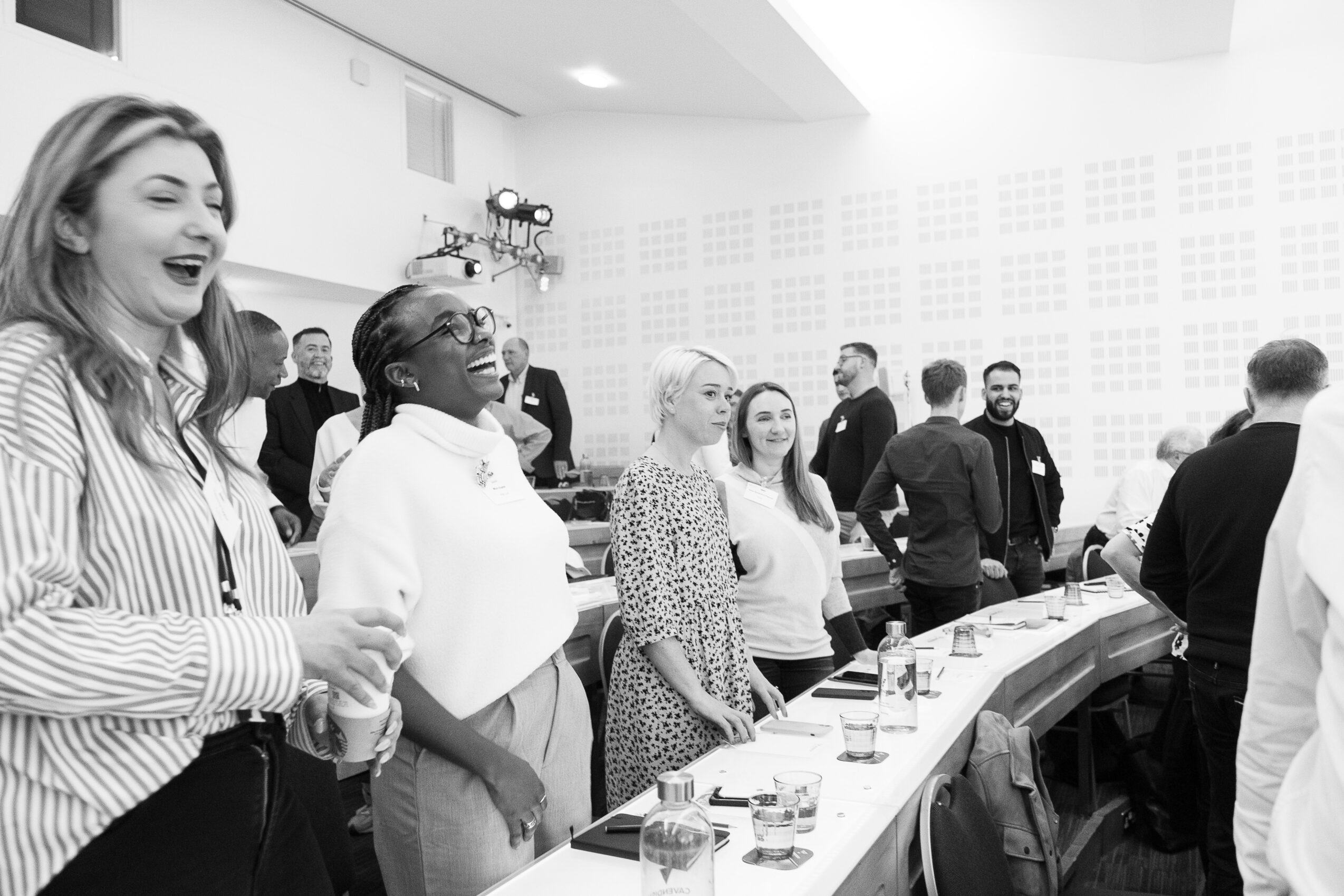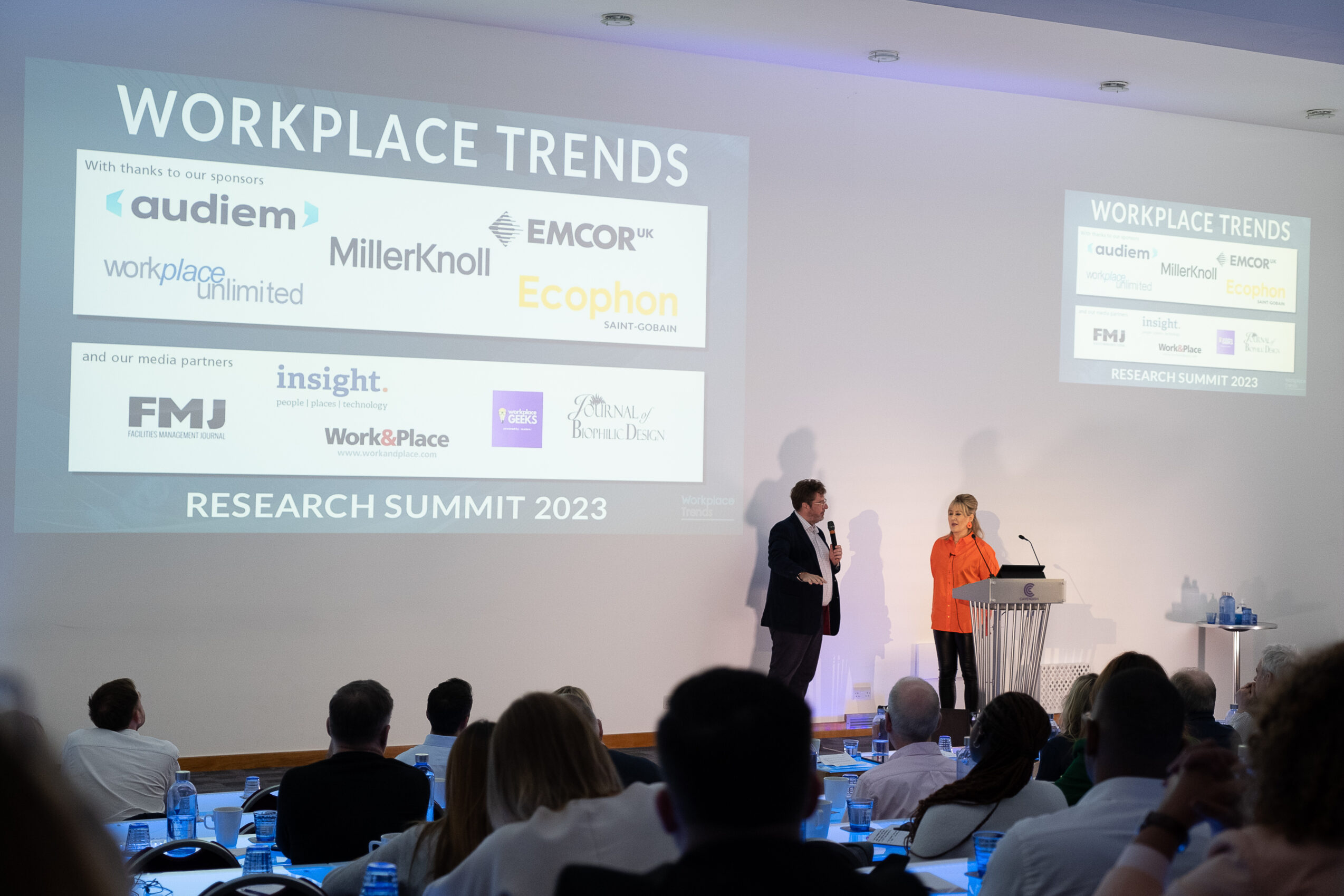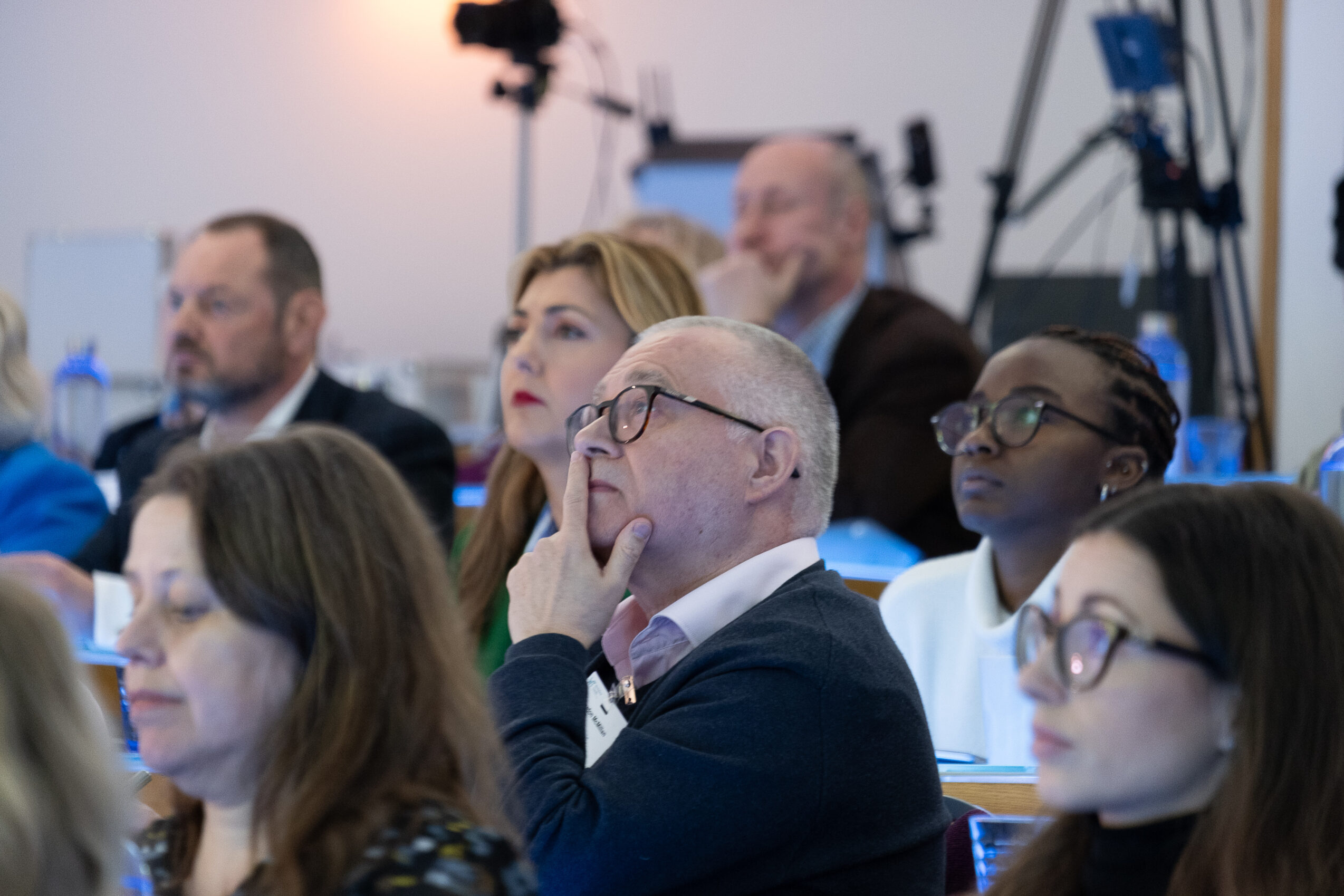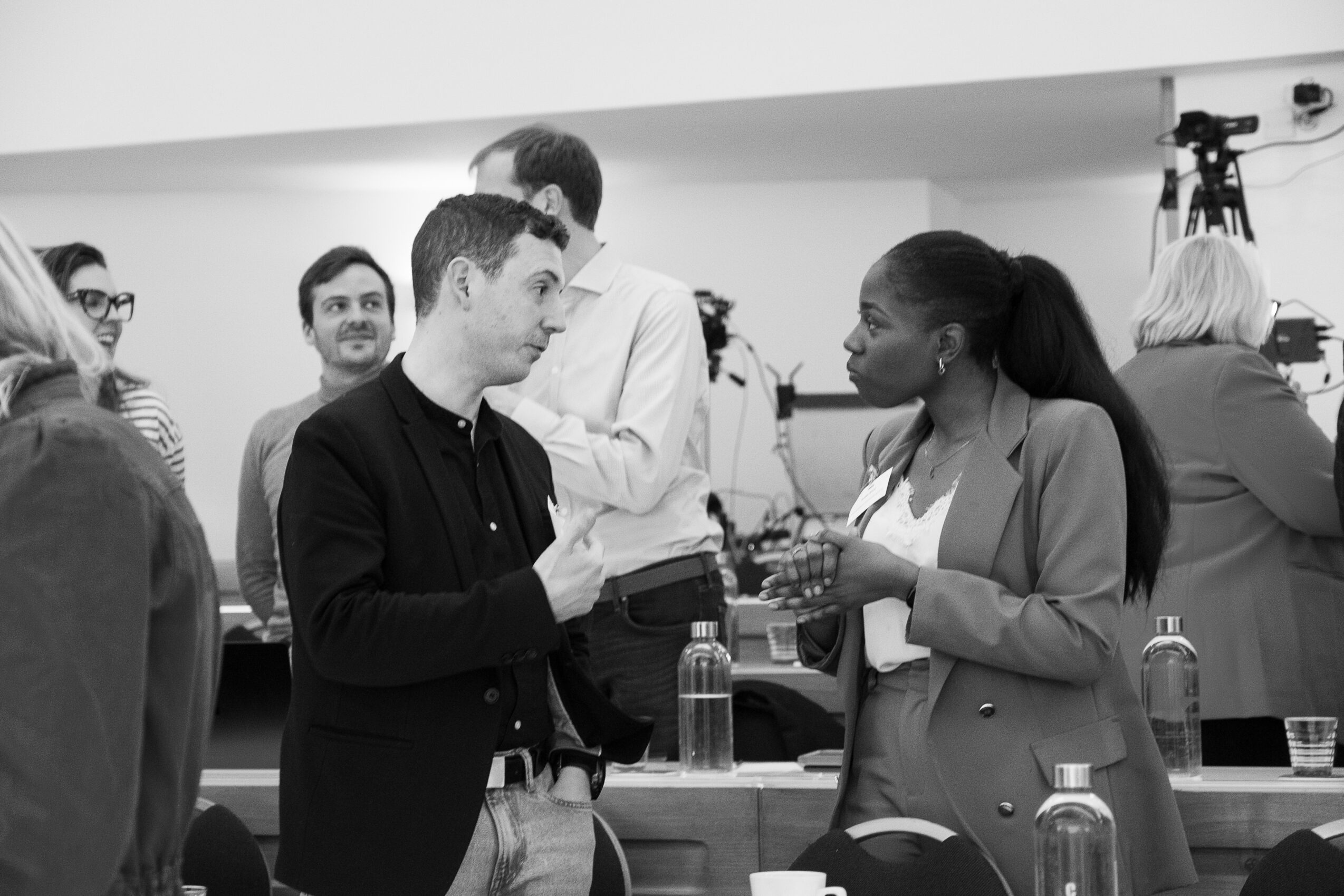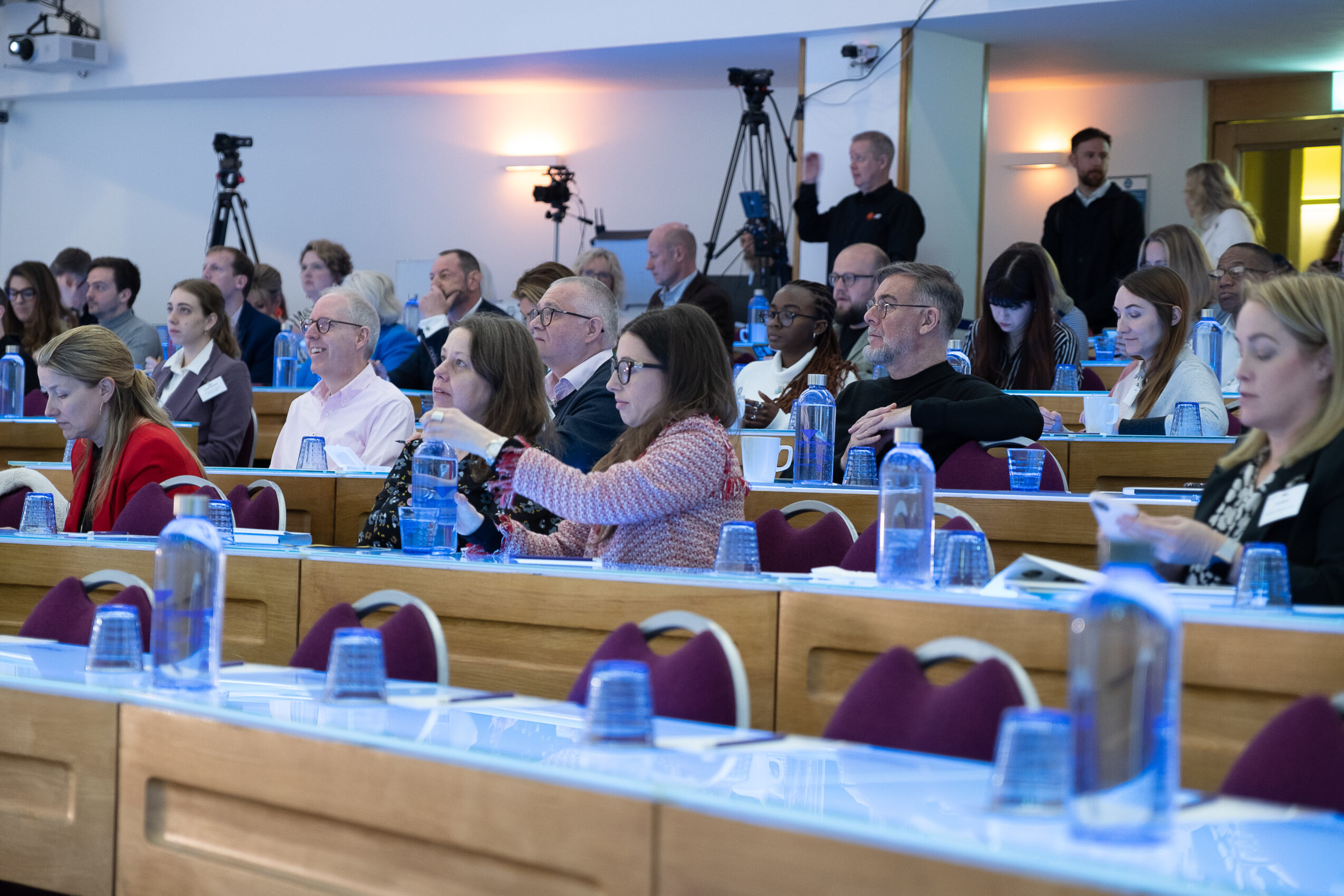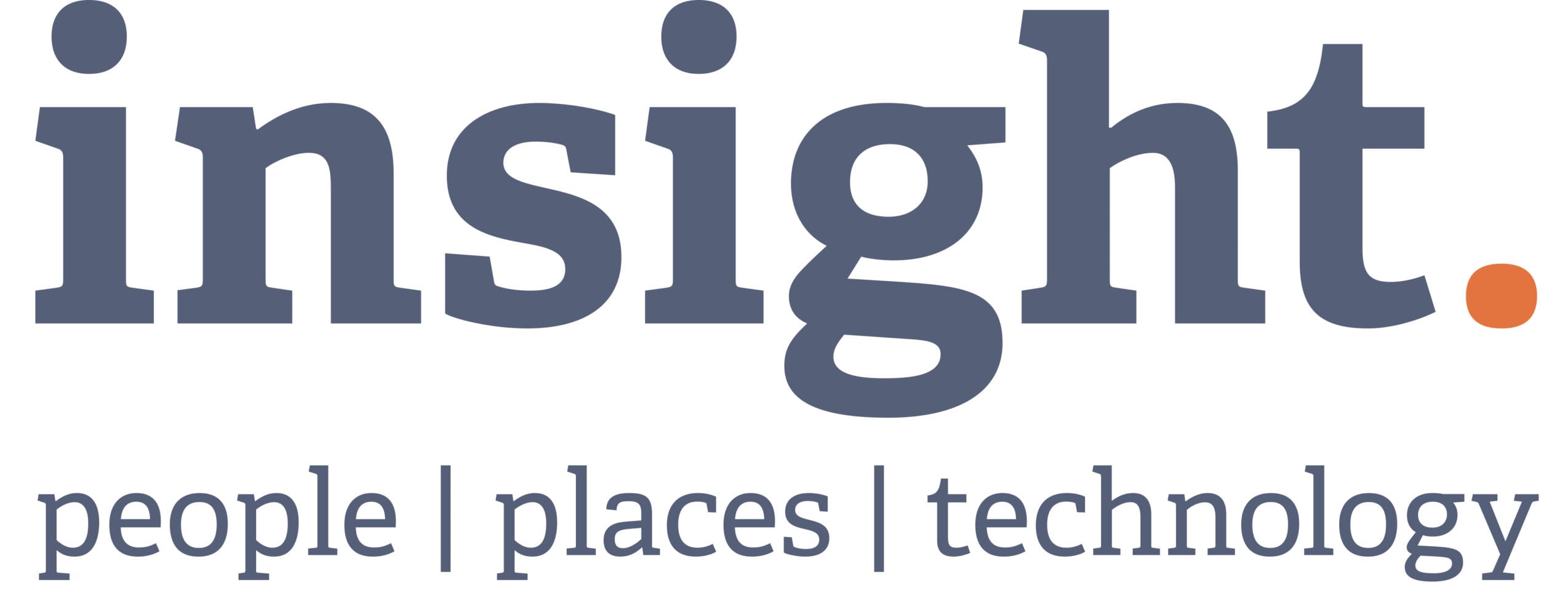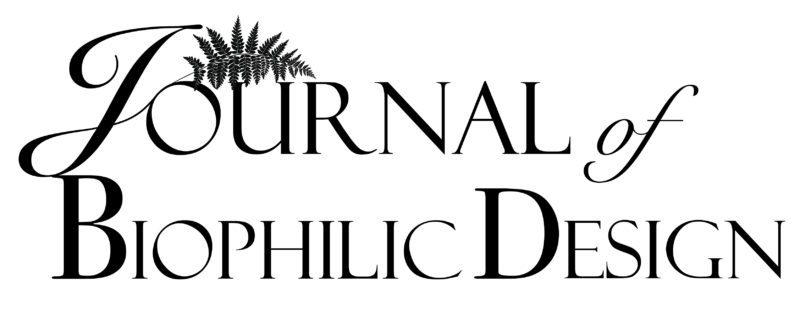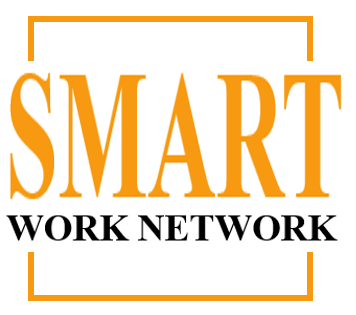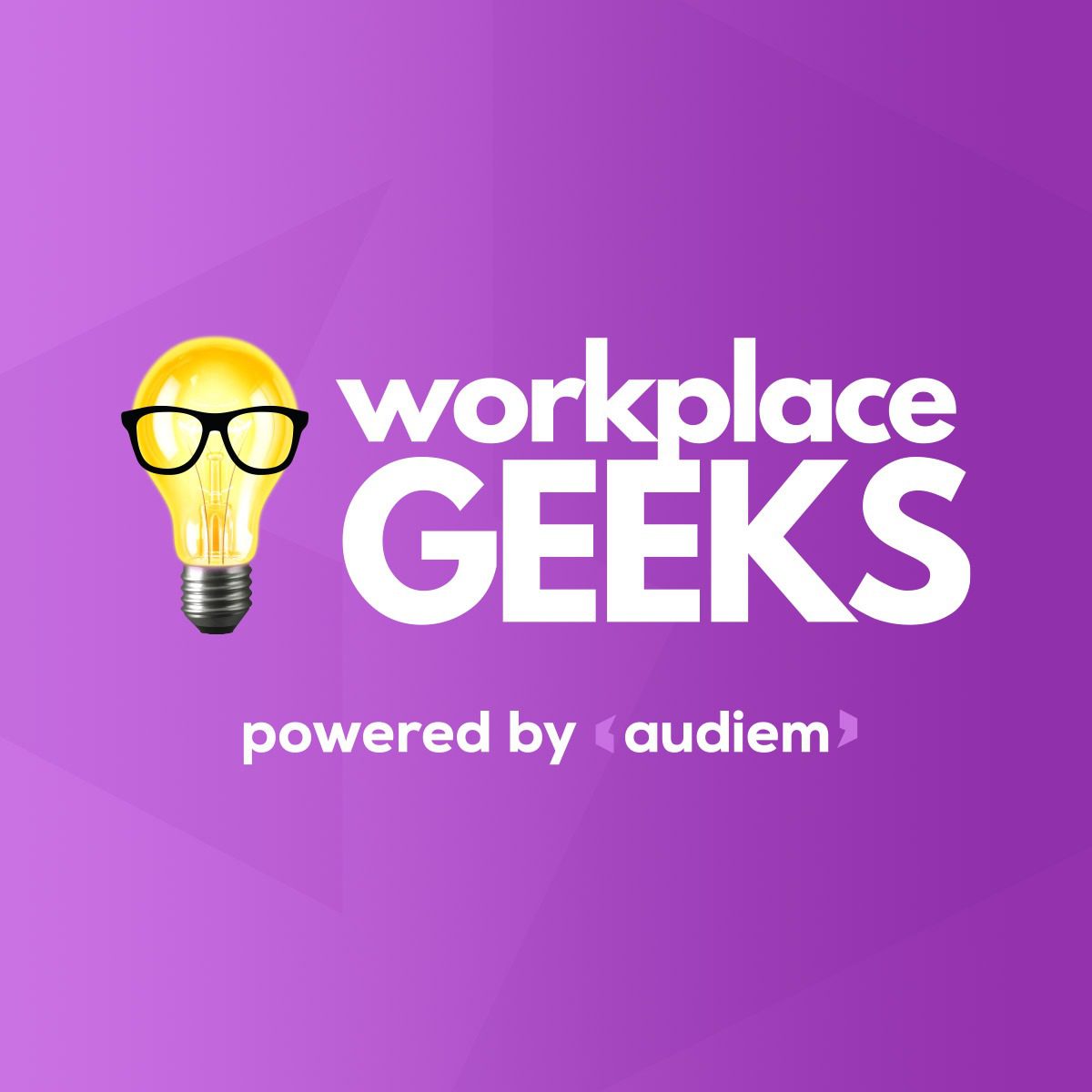Workplace: The User Experience Conference
The British Library, London NW1 2DB
10:00am – 4.30pm GMT+1, followed by Drinks Social
Exploring The Workplace Experience, Employee and Community Engagement, Space Utilisation, Productivity and Wellbeing at Work.
Workplace is in a constant state of evolution, more so now than ever before. Join us for a day of enlightenment, inspiration, and connection that’s not to be missed.
This conference is a convergence of expert minds and an invaluable platform to explore the future of work and workplace. It’s an event for all workplace professionals who design, manage, and nurture modern, attractive, productive, and healthy workplaces, and this year’s event promises to be one of the most captivating yet.
The day closes with our customary drinks social where the conversation continues.
Who’s Attending
Join around 150 fellow workplace professionals this 15th October – workplace directors and managers, designers, specifiers, architects, consultants and facilities managers.
These workplace professionals will be at Workplace: The User Experience Conference on 15th October. Register now and join them there!
(List updated 10 October).
| ABChange Consultancy | Managing Director in Change & Leadership |
| Active Workplace Group | Head of Workplace Strategy |
| AM (Adam Matthew Digital LTD) | Facilities Manager |
| American Interiors | Director of Workplace |
| Atrium | CEO |
| Audiem | Director and Co-Founder |
| Audiem | Director and Co-Founder |
| Audiem | TBA |
| Audiem | TBA |
| Baker & McKenzie LLP | Programme Lead |
| Bank of England | Workplace Change and Engagement Lead |
| BDG Architecture + Design | Director, Head of Strategy |
| Camino Insight Ltd | Founder & Director |
| Claremont | TBA |
| Claremont | Workplace Consultancy Lead |
| CMI Architecture | Director of Interior Design |
| Colebrook Bosson Saunders | Business Development Manager |
| Dana Petroleum Ltd | Facilities & Workplace Manager |
| Devonshire | Group Head of Recruitment |
| EDF | Workplace Strategy & Development Manager |
| eLocker | Senior Solutions Consultant |
| EMCOR UK | Head of Workplace |
| EMCOR UK | Workplace Consultant |
| EMCOR UK | TBA |
| EMCOR UK | TBA |
| Empire AI | Co Founder & CEO |
| Facilitate Magazine | News Editor |
| Facilities Management Journal | Editor |
| Financial Times | Management Editor |
| Flexibility.co.uk | Founder |
| FMJ | Editor |
| Form Design Consultants | Managing Director |
| Government Property Agency | Civil Service Fast Stream |
| Government Property Agency | Customer Experience Lead |
| Government Property Agency | Customer Experience Lead |
| Government Property Agency | Customer Experience Lead for the North Region |
| Government Property Agency | Customer Insight Analyst |
| Government Property Agency | Customer Insights Analyst |
| Government Property Agency | Customer Insights Analyst |
| Government Property Agency | Customer Insights Lead |
| Government Property Agency | Customer Insights Project Lead |
| Government Property Agency | Customer Insights Project Lead |
| Government Property Agency | Head of Smarter Working & Customer Insight Workplace Experience |
| Government Property Agency | Property Fast Streamer |
| Government Property Agency | TBA |
| Government Property Agency | TBA |
| Government Property Agency | TBA |
| Government Property Agency | Workplace Design Manager |
| Government Property Agency | Workplace Design Manager |
| Government Property Agency | Workplace Experience People and Engagement Manager |
| Government Property Agency | Workplace Experience Support |
| Hawkins Brown Architecture | Head Receptionist |
| Helen Tigue Interior Design | Owner |
| Human Connections | Human Factors Ergonomist & Chartered Physiotherapist |
| IntegritHE Ltd | Director |
| it does Lighting ltd | Director and Principal Lighting Designer |
| JAMstudio Ltd | Director/Architect |
| Journal of Biophilic Design | Founder Editor |
| Kingsley Symes Consulting Ltd | Director |
| Larch Consulting | Managing Director |
| LiveWest | Head of Workplace & Facilities |
| M Moser Associates | Associate Director |
| Medtronic Limited | Regional Facilities Manager (UK & Ireland) |
| MillerKnoll | Director, Global Insight Group |
| MillerKnoll | Dealer Sales Manager |
| MillerKnoll | Sales Manager |
| MillerKnoll | Senior Insight Strategist |
| MillerKnoll | Territory Sales Manager |
| Nokia | Design Services Manager |
| Nokia | Workplace Strategy and Development Lead |
| Oberlanders Group LLP | Associate & Interiors Lead |
| Osmond Ergonomics | Managing Director |
| Paragon Workplace Solutions | Global Workplace Experience Director |
| PosturiteLtd | Lead Consultant |
| Principal Innovation Partner | BT Business CTO |
| Sage | VP, Places |
| Saint-Gobain Ecophon | Concept Developer – Workplace |
| Saint-Gobain Ecophon | TBA |
| Saint-Gobain Ecophon | TBA |
| Saint-Gobain Ecophon | TBA |
| Saint-Gobain Ecophon | TBA |
| SAS International | Senior Portfolio Manager |
| Scottish Parliament | Head of FM and Workplace |
| Shape of Work | TBA |
| Sitemark Ltd | CEO |
| Skyscanner | Senior Workplace Manager |
| Sony | Senior Commercial Manager |
| Studio 84 Consultancy Limited | Workplace Strategy Consultant |
| STUDIO BANANA | Co Founder |
| STUDIO BANANA | Co Founder |
| STUDIO BANANA | Senior Design Strategist |
| TBA | Workplace Consultant |
| The Flow | Independent Consultant |
| The Safety Elf | Posture and Ergonomics Consultant |
| tp bennett | Director |
| tp bennett | TBA |
| Troldtekt | Country Manager |
| UCL | Honorary Professor |
| UCL | Professor |
| Unispace | Strategy Lead EMEA |
| University of Kent | Assistant Director – Estate Planning |
| University of Kent | Head of Space Planning |
| Vantage Spaces | Client Relations Director |
| Woodtrail Limited | Director |
| Workplace Consultant | Workplace Consultant |
| Workplace Scotland Limited | Director |
| Workplace Unlimited | Environmental Psychologist, Workplace Consultant |
| World Animal Protection | Global Workplace Experience Manager |
| WPP | Global Head of Facilities Management |
Agenda
Registration, Exhibition, Coffee & Pastries (9.15)
Welcome and Introduction (10.00)
– Nigel Oseland, Workplace Unlimited
– Chris Moriarty, Audiem (Morning Moderator)
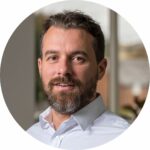
People, Productivity, Planet: Reinventing Work for a Digital Age (10.10)
– Dr Nicola Millard, Principal Innovation Partner, BT Business CTO
The future world of work was already being redefined by digital technologies before the pandemic hit. Now, as old, and new ways of working collide, we have a unique opportunity to rethink things to make work work for people, productivity and the planet, whilst harnessing the best of both real and digital worlds.

Designing Creative Workplace Communities (10.35)
– Tom Helliwell, BDG Architecture + Design
– David Laver, Global Head of Facilities Management, WPP
London is the only international city where the youngest workers are in the office the most*. Post-pandemic workplace practices are now settled in and the younger generations are embracing offices as opportunities for learning, connecting and socialising. So how do you create a modern large-scale workplace that caters to multigenerational needs? How can you make the workplace commute-worthy for older generations to encourage them to connect with their younger colleagues?
BDG Architecture + Design has transformed One Southwark Bridge (completing Autumn 2024), the former FT Headquarters. This landmark office for WPP offers space for work but also a hospitality-focused amenity offer which incorporates event space, client entertainment space, a canteen and cafe, library and communal breakout space. The team uses a research-led approach to design, engaging with the client through storytelling workshops to ensure that the repositioning of the workplace goes beyond the building itself to create an environment that supports a multigenerational workplace.
*data from Centre for Cities 2024
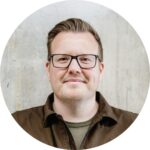

Mind the (workplace) Gap: From Boomers to Zoomers (11.00)
– Iain Shorthose, Paragon Workplace Solutions
– Jo Cameron – Group Head of Recruitment, Devonshire
– Natasha Christian – Director of Interior Design, CMI Architecture
– Alan Durward – Head of FM and Workplace, Scottish Parliament
It’s estimated that in 2024 Gen Z will outnumber Baby Boomers in the workplace and by 2030, they’ll make up 30% of the workforce. Are employers truly prepared for this change, and what do we need to consider for this transition?
One generation coming of age and replacing another in work is something we’ll all experience in our working lives over and over again. But this time it appears to be a cause for real concern amongst some business leaders.
Join Iain Shorthose and a panel of experts to explore the expectations of these younger of office workers.
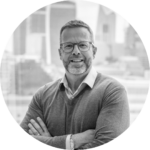
Morning Break (11.25)
Workspace? Easy! (12.00)
– Neil Usher, Author & VP Places at Sage
How easy can creating workspace be?
If we believe what we read, it’s impossible. So many questions, so few answers. But what if you had a clear, simple, logical and jargon-free guide to how to create a fantastic workspace? No empty promises. And no radical concepts, new panaceas or paradigm shifts. Or surveys.
Because that’s just what Kursty Groves and Neil have created. The ultimate ‘how to’ manual. It’s been the book everyone has needed and yet no-one had attempted. And it’s what they’re going to talk about. You’ll hear why this guide is needed, how the authors struggled to demystify an industry, and be entertained by some of the things that went wrong along the way.
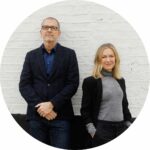
The Impact of Workplace Lighting on Health and Wellbeing (12.30)
– Ulysse Dormoy, Atrium, Bob Fosbury and Glen Jeffery, University College London
Innovation in lighting over the past twenty years has focused almost exclusively on energy efficiency. This has resulted in much needed improvements in energy savings that are contributing to the fight against climate change.
However new scientific research suggests there is a hidden human cost. Have we lost sight of the quality of light that people need for their health and wellbeing?
We delve into the science of light, how it affects our bodies, and its impact on design. This session includes research and resulting recommendations on:
- The link between light deficiency and health issues
- The importance of near-infrared light for mitochondrial function
- Strategies to integrate human health into lighting design
Just one example of many potential benefits of the right lighting – in the UK we spend £9bn a year on treating Type 2 Diabetes, when a simple intervention of the right kind of light (free if you go outside) has been shown to reduce blood glucose levels.
This presentation follows a spring masterclass from Workplace Trends, Atrium and UCL. Much discussion and questions ensued at the time and therefore we have lengthened this session to allow ample time for Q&A and debate.
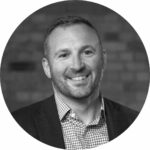
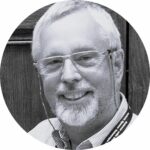

Lunch (13.10)
Welcome Back (14.10)
– Nigel Oseland, Workplace Unlimited, Afternoon Moderator

Hearing Women in the Workplace (14.15)
– Paige Hodsman, Saint-Gobain Ecophon
It is often said that men and women have different verbal communication styles, including differences in the types of communication they use, and how they use language. For women, however, the differences may have profound implications, especially in the workplace. Countless published research papers and popular press articles verify that women struggle to be heard in the workplace, particularly in meetings and in the boardroom.
Paige will present the findings from a recent literature review and interviews which have identified four key reasons behind this and will also share potential solutions.
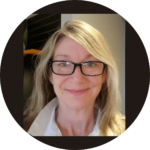
Realities of Office Space Utilisation (14.40)
– Hodan Aden, Empire AI
In this presentation, Hodan shares key insights from analysing 160,000 data points on office space utilisation in Norway and Sweden. Her findings reveal a significant disconnect between perceived and actual office space usage, highlighting that 64% of office rooms remain unoccupied during work hours. Additionally, while 78% of meetings involve four or fewer participants, only 28% of meeting rooms are appropriately sized.
These insights will be valuable for anyone involved in workspace planning, demonstrating the importance of data-driven decisions to improve productivity, well-being, and resource efficiency.

Afternoon Break (15.05)
From Legacy to the Metaverse: Transforming the workplace experience for Audemars Piguet (15.35)
– Key Kawamura, STUDIO BANANA
Over the years Studio Banana has supported Audemars Piguet, an almost 150 years-old family-owned Swiss watchmaking firm, delivering future-proof working environments aligned with the company employer branding policy. During the different projects, we set a testing ground for new ways of working that reflected the brand’s legacy and attachment to the region and delivered forward-looking resilient workplace strategies that helped boost the future of the company.
In this presentation we will share key learnings from the strategic roadmap carried out to build a successful employee experience that helped amplify the AP brand for talent attraction, loyalty and development. This case study presents the range of projects, approaches and strategies deployed at multiple sites as well as how an industrial company has adapted to a post-Covid world of work.

Towards a New Relationship-Based Design Model (16.00)
– Mark Catchlove, MillerKnoll Global Insight Group
Until recently, supporting activity-based work was considered cutting-edge workplace strategy. How much people valued their workplace depended upon how well it supported their everyday work activities.
However the value of the workplace today is more nuanced. Desk-based workers can successfully perform many of their tasks almost anywhere, but relationship-building is much less effective at a distance.
And in survey after survey, we see the growing importance of relationship-based work. So rather than creating a series of spaces that are tailored to certain work activities, a relationship-based work model asks us to consider who needs to be supported and the nature of their interactions.
This includes everything from interactions that prioritise production, helping move specific work forward, to interactions that prioritise information exchange or personal reflection, helping build culture and a sense of belonging.
To support this range of interactions, this session will propose taking a neighbourhood planning approach. This entails designing a collection of neighbourhoods within the workplace, with distinct characteristics that respond to how different people cycle through various types of interactions through any given workday focusing on individual, group, and community. Mark explores how organisations can apply this new relationship-based design model to improve employee wellbeing, facilitate connection, and navigate change in their workplace.
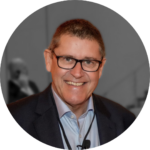
Moderator’s Summing Up (16.25 approx)
followed by Drinks Social
There’s still time to book! Register now to secure your seat.
Your registration fee includes:
- Day ticket to the conference
- Access to a live list of your fellow delegates
- Video recordings and PDFs of presentations filmed on the day
- Catering, including our post conference drinks social
- Certificates of Attendance for CPD purposes.
